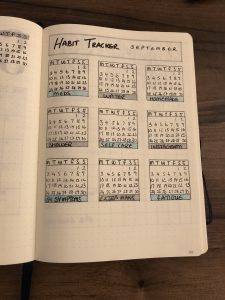
What does it mean to be a “patient”?
Just HOW do you do it *all* when you’re chronically ill?
It is a question I wonder about from time to time.
Sometimes I have my shit together and other times I don’t.
And sometimes, this is just the way it goes; for some, for others, for the many.
I don’t seem to have an off season with my IBD, there is sadly always something going on. Whilst it is currently stable, that does not mean I don’t have periods of time when I feel as rough as if I was in a flare up and heading towards a hospital admission.
But how do you manage being a patient whilst you are doing everything else – being an employee, a partner, a mother, father, brother, sister, friend, volunteer, your own person?
It is another label to add in, but for me, its important one.
For most people, they are a patient a couple times a year when they have an issue and see a GP for a solution. For me and many others who have a chronic illness, you become a patient, full time, every day; not just with one specialist but multiple in some cases. It’s hard work. It’s like another job on top of your paid employment.
And I won’t lie, being a patient isn’t always plain sailing. Despite having an illness that requires monitoring and close observation from time to time, I still have to fight – and fight hard when I have physical and mental strength – to be taken seriously, to be taken as I am: chronically ill.
How exactly do I keep my shit together?
Being Organised
I’ve always been an organised person and this has really kicked into high gear when I started to see that being organised could help me feel better. For the most part, it’s been about being on top of everything and I learnt overtime what was best to record and what could be left behind and not bothered with.
Now, this might all seem overwhelming, and my first klaxon going off in my own head is ‘What happens when you don’t feel well enough to be organised?‘ and that’s exactly why I keep it simple.
I keep my hospital letters for appointments and then the corresponding letter following that appointment, all organised in a medical folder. This is divided into specialities. I then have a section for blood results, procedure outcomes and my discharge notes from admissions in a section too. Then this is all sorted by year. So, so far I have three folders of ‘paperwork’ related to my IBD and assorted aliments linked to it.

I can call upon things when I need to. That’s been handy when I relocated and needed my notes to take to new doctors when my specalists transferred over. Or when I was admitted and no-one had a clue about me, I did! I had all my notes.
I also keep tabs on all my repeat medications and now my appliances too. I use Medisafe to track my taking of medication but it also reminds me when things are due to be renewed with my GP. I then use Ostobuddy to help me track my routine of my ostomy supplies and usage too. I’ve been doing this almost since I got my stoma two years ago and so far have never run low of supplies.
Being organised can sometimes bite you in the butt. Being ‘too’ organised can be a negative thing but I find keeping these things away from your vision – so my ostomy supplies are in the bathroom, my paperwork in my desk along with my medications and my apps on my second screen on my iPhone home screen; helps me detect from it for a while. But it’s safe knowing its there when I need it.
Knowing Your Stuff
I read about Crohn’s disease ALOT in my first couple months, trying to suss out what was going to happen to me. Turns out, you can’t predict it sometimes. But being aware of the possible fall out from medications, options and long term side effects of your treeatments is always helpful.
And, being a patient, sometimes means asking the scary questions: When will I need surgery? How much risk does this come with? Will this affect my fertility? How will it impact on my Quality of Life? How long will recovery be? All these questions and more are loaded with positives and negatives which impact individual patients differently.
For me, risk v benefit was always something I looked into once a medication or procedure was expalined to me and that I needed to have. But! As the patient, I knew I had the final say. My doctors could advise me and give me their clinical opinion but at the end of the day, what to take and how to do things, that was in my hands.
Sometimes it won’t feel like that but at other times it will. Knowing your stuff and being a smart and intelligent patient can go along way. And there is no harm in asking more questions – even the simple, most basic ones – if that is what helps you understand and know what is happening or going to happen. Being kept in the dark is the most frustrating part of being a patient; full stop. Being a chronically ill patient, you have one thing on your side – knowledge.
KNOWELEGE IS POWER.
YOU live with this illness, not your doctors. They have trained to be specialised in this field but they do NOT know everything. And they are human too. They are not god and they do not command you to bow before them. Respect them, appreciate their speciality but they do not have your illness.
Self-Management
For me, self management has been a big factor is how I present myself as a patient and how I am able to communicate well and effectively. I have several ways of doing this:
- Calendar for appointments and reminders – Once I’ve confirmed an appointment, it goes into my diary under, surprise surprise, Appointments. I set a reminder for this 1 day ahead and a hour before the appointment. My iPhone also gives me a reminder when its time to travel to my destination too; thanks Apple! In this event in my calendar, I can make notes of what to ask about, what I want answers to – test results, future planned procedures – and I can also make notes after too, so I can follow up if needed.
- Medications – I also remind myself to take my medications. I do this in my calendar but also in an App too called Medisafe. I’ve found this particularly useful as it shows me which tablet and dose to take. And whilst at the moment, I am only one four different medications, you never know when this might change.
- Symptoms – I track several things every day, with my habit tracker in my Bullet Journal. I only use my journal for my health and my blog because that makes the most sense and this way, its sole dedicated to that.
 I track GI symptoms – so things like my abdominal pain, my neasea, my loose output, reflux – and then Extra Intestinal things too – like joint pain, skin issues and peristomal issues. And there is a whole tracker for fatigue because this is now my biggest symptom and keeping an eye on this helps me determine how good or bad of a month I’ve had with my fatigue. I never used to track things but it’s become invaluable because I can see exactly where I have been the most tired, symptomatic and struggled just by what days are coloured in.
I track GI symptoms – so things like my abdominal pain, my neasea, my loose output, reflux – and then Extra Intestinal things too – like joint pain, skin issues and peristomal issues. And there is a whole tracker for fatigue because this is now my biggest symptom and keeping an eye on this helps me determine how good or bad of a month I’ve had with my fatigue. I never used to track things but it’s become invaluable because I can see exactly where I have been the most tired, symptomatic and struggled just by what days are coloured in. - Emotions – In my habit tracker I also look at what I do a daily basis that helps me emotional state. So I’ve been tracking my ’emotions’ with my Period app – I can note down several things like cramping, level of bleeding and my emotional state too! And whilst it feels like going overboard, in actual fact, my emotions cycle along side my period too and this in turn affects my IBD too; especially fatigue.
Managing your calendar, your medication routine, your emotions – positive and negative – it all takes HARD work. I won’t lie that sometimes, I fill in two days at a time on my tracker because I am so tired and I forget. I have the best intentions, always, but sometimes life takes over. I’ve tried to make it as simple as possible so that it is not a huge effort to note down these things on a daily basis. I usually carve out some time before work to fill in and note some things down. And I know that all this information is good to collect so that when I have my next GI appointment, I can go armed with information.
Is there any pressure to be a “good” patient?
Of course!
The definition of ‘good’ might be one thing, but it is very subjective. It just depends what you can find energy to do. I have moments when I want everything doing and I achieve that but at other times, I just have enough time and energy to attend appointments and hope I don’t end up passing out or being sick. It’s so subjective and variable; and this should be your choice.
I admit to putting pressure on myself to being a “good” patient – ie the patient who takes all their meds, on time, every day without fail. Attended all appointments, is complacent and does what is asked of them. But at times, I forget to take meds on time. I forget to ask all my questions in clinic and forget what has been said. Sometimes I need some reassurance that my symptoms aren’t life threatening or hazardous or signs of something worst. And sometimes I just want to not have to deal with being a patient at all.
And this part, this ‘good’ patient bubble doctors want you to be, is what makes being a patient with a chronic illness FULL TIME WORK.
Even I hesitate
Yes, I do.
I hesitate A HECK OF A LOT – ranging from how much to share, on being ‘too real’ and true about aspects of chronic illness, of what having an illness that has no cure feels like. And I hesitate when it comes to thinking about the future too.
I’ve spent the majority of my twenties sick. I’m now thirty and I will spend my thirties being sick, someone with a invisible and incurable chronic illness.
In my youth of 23 and having just been diagnosed, I did not like the fact that this was incurable. I still don’t like it but I’ve gotten used to it, somewhat. I didn’t like the phrase ‘chronic’ but life long was a mouthful and when my IBD got more ‘serious’ – ie my response to treatments dwindled and I was in seeing my doctors every damn fortnight, chronic fitted very well.
And whilst I’m on the other side of that period of my IBD, I still know that it could happen again. I will never be ready for it, no-one is. Noone is prepared for your body to fail and gives up, little by little. No one, at all, is every going to be ready for that. It will always be a shock. And to have to say to your family, your friends, your colleagues that you are sick again, it sucks. And my heart hurts for those who I know who go through bad time after bad time, because I have been there, it SUCKS BALLS.
I hesitate most of all to show the bad days and the good days, in conjuction with each other. Because they do happen. I can be good one day and awful the next and vice versa. And the vice versa times, boy is that when people have something to say. That ‘you can’t be sick then suddenly well again’ ‘you mustn’t be that sick then’ ‘you must be faking’ ‘gosh, I wish I could pull that stunt’ – it gets to you. No lie, it gets to you. And whilst I am becoming better at standing my ground and standing up for myself, its not always easy.
So, just how do we do it all?
The secret is, we don’t.
But yet, we plod and push on. Because needs must.

Further reading:
10 Steps to Becoming an Empowered Patient
15 Questions Every Patient Should ask their GI
3 Essential Tips for Newly Diagnosed Patients
Patients Have Power, Don’t be Afraid to Use It
5 Things New Patients Experience (but are afraid to talk about)
3 Things It’s Okay to Do with Inflammatory Bowel Disease
Cleveland Clinic – The 9 Best Way to Be a Better Patient
MYIBDCARE – its an app being development from Ampers and Health to promote self management of IBD between clinicians and patients.



